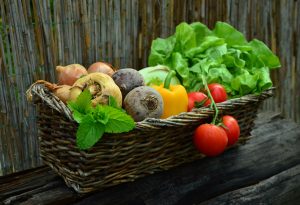It’s no secret that we’re all living longer. At times our bodies can feel '40-something', but our memory struggles to keep pace. Does this sound familiar: You can’t recall a familiar name in a conversation, where you parked the car, or the date of your niece’s birthday – those ‘senior moments’ can be frustrating. Luckily, there is a lot you can do to keep your brain healthy and working well into the 'Golden Years.' Here are some useful tips to take note of.
Massage your memory
The more you consciously try to memorise actions and activities, the easier you can master this cognitive function. Start your day with a crossword puzzles or Sudoku, take music lessons, learn a new language, or play chess. If this doesn’t appeal to your tastes, then you can just do more to exercise your memory. For instance, make a conscious effort to learn your ‘to-do’ or grocery lists. Try to engage all your senses when involving your memory, too. Your brain will retain much more information if all the senses are included in the process of learning something new. Give ceramics a go; notice the smell and feel of the materials used.
Step it up
Physical activity is brilliant mental exercise. Exercise helps both your cognition directly and indirectly. Directly, it supports the reduction of inflammation and insulin resistance, as well as stimulates the production of growth factors – chemicals that assist with the overall maintenance of brain cells. Indirectly, exercise enhances sleep quality and emotional wellbeing, thereby reducing anxiety and stress – areas that often play a key role in cognitive impairment. Aim for a half an hour of moderate exercise most days of the week. Sounds intimidating? Start gentle exercise effort with a few minutes a day and then gradually build up your stamina. Aim for something that gets your heart pumping: walking, stair climbing, squash, dancing, or tennis. Even housework can make you break a light sweat!
 Restore with rest
Restore with rest
Besides waking up alert, energised and ready to take on the day, having an eight hours of sleep supports your brain’s ability to consolidate events into memories. A study from the University of California, San Francisco discovered a link between poor sleep quality and reduced function in the brain’s frontal lobe, which assists with memory and processing information. Power napping (15 minutes) is thought to help, too.
Take it easy on alcoholic and caffeine drinks
We all enjoy unwinding with a glass of wine or pint of beer every now and then, but excessive drinking can take its toll on your memory later in life. A recent study discovered that middle-aged men who consumed more than two and a half drinks per day experienced cognitive problems and memory loss up to six years sooner than moderate drinkers. Top tip: use smaller glasses for your tipples so you aren’t tempted to drink the entire bottle of wine in one sitting.
Practice mindfulness
Mindfulness is the 'buzzword' of the moment. Alongside supporting anxiety, low mood and addiction, a growing raft of scientific research suggests this practice can improve your memory, too. One investigation found students at improved their focus and memory after meditating for 10-45 minutes, four times per week after just two weeks. The participants implemented mindfulness techniques like deep breathing, counting exercises and listening to relaxing sounds.
Organise your life
Most of us like routine. However, having the same routine all the time (driving the same route to work, or doing the same workout at the gym....) isn’t good for our memory. New experiences and practices can help your brain retain and recall information. So try why not change your lunch / exercise class / walk in the nature, and see, how it benefits your memory.
 'Brain nutrition'
'Brain nutrition'
To revitalise your memory, you need to fuel it with an assortment of colourful, nourishing food. Berries (especially dark skinned ones) are high in anthocyanins / antioxidants that can help the aging brain function, thus your memory. In 2012, scientists at Brigham and Women’s Hospital discovered older women who consumed large amounts of antioxidant-rich berries delayed their memory deterioration by more than two years compared to their non-berry eating counterparts. using fresh or frozen berries in your diet is pretty simple: sprinkle them on porridge, add a handful to smoothies, or munch on them straight from the punnet.
Another 'memory boosting' food is oily fish, high in omega-3 fatty acids. These compounds have shown immense promise in supporting all aspects of cognitive function, including memory.why not aim to eat 2-3 portions of oily fish each week. Wild caught salmon, anchovies, mackerel, and herring also serve up a delicious amount of omega-3.
Medical Herbalist approach
The approach is always to aim to help you to gain optimal function and improve quality lifestyle and health choices, whilst supporting you with the help of individually tailored natural herbal remedies to aim improve your underlying issues and symptomatic conditions.
Rosemary (Rosmarinus officinalis)
Rosemary is one of our top culinary herbs, but is also wonderfully medicinal and nourishing for the nervous and cerebrovascular systems. Rich in terpenes, phenolic acids and flavones, rosemary is strongly aromatic and a potent antioxidant. Energetically, it is warming and slightly bitter, making it a great herb to for digestion and circulation as well. Rosemary relaxes smooth muscle spasm and the smooth muscles of capillaries and arteries, thus enhancing blood flow to brain and elsewhere in the body. It supports cognition, memory and alertness, giving us that mental “on”feeling. Rosemary tea is quite delicious as an afternoon pick-me-up, and rosemary can be found as a tincture and capsule.
When we think of herbal medicine, we often think of relaxation, massage, and essential oil diffusers. But memory – really? Well, according to new research conducted by Northumbria University exposure to rosemary essential oil is thought to boost your ability to recall things - or just rub that rosemary from you garden between your hands and smell the fresh, invigorating aroma. Experts discovered that students working in a room with diffused rosemary essential oil attained between 5-7% better results in memory tests than the control group. How about seasoning your roast potatoes with rosemary and garlic - delicious and good for your overall health.
Lemon Balm (Melissa officinalis)
Lemon balm is incredibly nutritive to the nervous system. It is calming and supports the mood while also increasing alertness , thus affecting the cognitive speed. Energetically lemon balm is cooling and helps us to recenter, ground and tune in. It strengthens the brain and its resistance to stress/shock, and lifts the spirits. Lemon balm is delicious herb to be enjoyed as infusions, herbal syrups, tincture, cordial, capsules and as fresh herb.
Bacopa (Bacopa monnieri)
Bacopa is also known as Brahmi. It has been used for more than 3,000 years in Ayurvedic medicine for increasing brain function, or promoting longevity. Has a reputation for enhancing circulation to the brain, thereby increasing short and long-term memory, improving concentration, mental performance and cognitive function as a whole. In herbal medicine it can be used in disorders of the nervous system such as insomnia, anxiety, stress. It is fairly bitter and energetically cooling as well as rejuvenating herb for vitality and longevity. Bacopa is an antioxidant, anti-inflammatory, cerebral tonic, neuroprotective and nervine. It is a fantastic herb to use daily to support mental clarity for those that might have trouble sitting and focusing on the task at hand to promote attention, or for those who are over-stimulated mentally to combat mental fatigue.
 Gingko (Gingko biloba)
Gingko (Gingko biloba)
Gingko is a powerful antioxidant, rich in flavonoids and proanthocyanidins. It is a vascular tonic and improves brain metabolism of glucose and oxygen. I As a balancing tonic it brings stimulation to the brain via cerebral blood circulation, while being a relaxing nervine to other areas of the body Gingko is a classic example of the doctrine of signatures, wherein structure or appearance elucidates function: gingko leaves have a distinct bi-lobed symmetry reminiscent of the brain. As an antioxidant, it helps to protect the brain from oxidative stress and in the aging process. It promotes blood flow to the brain to improve memory and concentration, cognitive & brain function. It is important to remember that Gingko can inhibit platelet aggregation and is therefore not suitable for people with blood clottingissues. It can be used as tinctures, capsules, tea and topically as ointments and creams.
Gotu Kola (Centella asiatica)
Gotu kola has a long history of use in Ayurveda, and is considered to be a rejuvenating tonic for vitality and memory. Energetically it is cooling and drying. It is also considered to be a revitalising herb that strengthens nervous system function & memory.Gotu kola also supports vascular health and can be used internally or topically to heal or rejuvenate hair, skin and nails. Gotu kola is also called brahmi - which can be a bit confusing! Gota kola can be consumed as a tincture, tea, powder or capsule.
Contact The Green Herbalist Clinic's
links on this website
for free 15 minute discussion.
References:
i.Heisz, J., Clark, I., Bonin, K., Paolucci, E., Michalskio, B., Becker, M. (2017). The Effects of Physical Exercise and Cognitive Training on Memory and Neurotrophic Factors. Journal of Cognitive Neuroscience, 29(11), 1895-1907.
ii.Sanders, R. (2018). New evidence that chronic stress predisposes brain to mental illness. Berkeley News, Available online: https://news.berkeley.edu/2014/02/11/chronic-stress-predisposes-brain-to-mental-illness [Accessed 7 Dec. 2018].
iii.American Academy of Sleep Medicine – Association for Sleep Clinicians and Researchers. (2018). Journal SLEEP: Study Concludes a Daytime Nap Can Benefit a Person’s Memory Performance - American Academy of Sleep Medicine – Association for Sleep Clinicians and Researchers. Available online: https://aasm.org/journal-sleep-study-concludes-a-daytime-nap-can-benefit-a-persons-memory-performance [Accessed 5 Dec. 2018].
iv.Kabai, P., Sabia, S. & Singh-Manoux, A. (2014). Alcohol consumption and cognitive decline in early old age. Neurology, 83(5), 476-476.
v.Hamblin, J. (2018). Study: Meditation Improves Memory, Attention. The Atlantic. Available online: https://www.theatlantic.com/health/archive/2013/05/study-meditation-improves-memory-attention/275564 [Accessed 5 Dec. 2018]
vi.The Hub. (2018). Caffeine has positive effect on memory, Johns Hopkins researchers say. Available online: https://hub.jhu.edu/2014/01/12/caffeine-enhances-memory [Accessed 5 Dec. 2018].
vii.(2018). Herbs that can boost your mood and memory. Northumbria.ac.uk. Available online: https://www.northumbria.ac.uk/about-us/news-events/news/2016/04/herbs-that-can-boost-your-mood-and-memory [Accessed 5 Dec. 2018].
viii.Hopper, L. (2018). Curcumin improves memory and mood, new UCLA study says. UCLA Newsroom. Available online: http://newsroom.ucla.edu/releases/curcumin-improves-memory-and-mood-new-ucla-study-says [Accessed 5 Dec. 2018]
ix.(2008) Brain foods: the effects of nutrients on brain function. Nature reviews, Neuroscience, 9(7), 568-78
x.EurekAlert!. (2018). Berries keep your brain sharp. Available online: https://www.eurekalert.org/pub_releases/2012-04/bawh-bky042512.php [Accessed 6 Dec. 2018]. Natures Best

